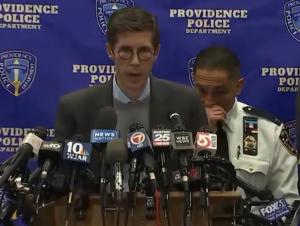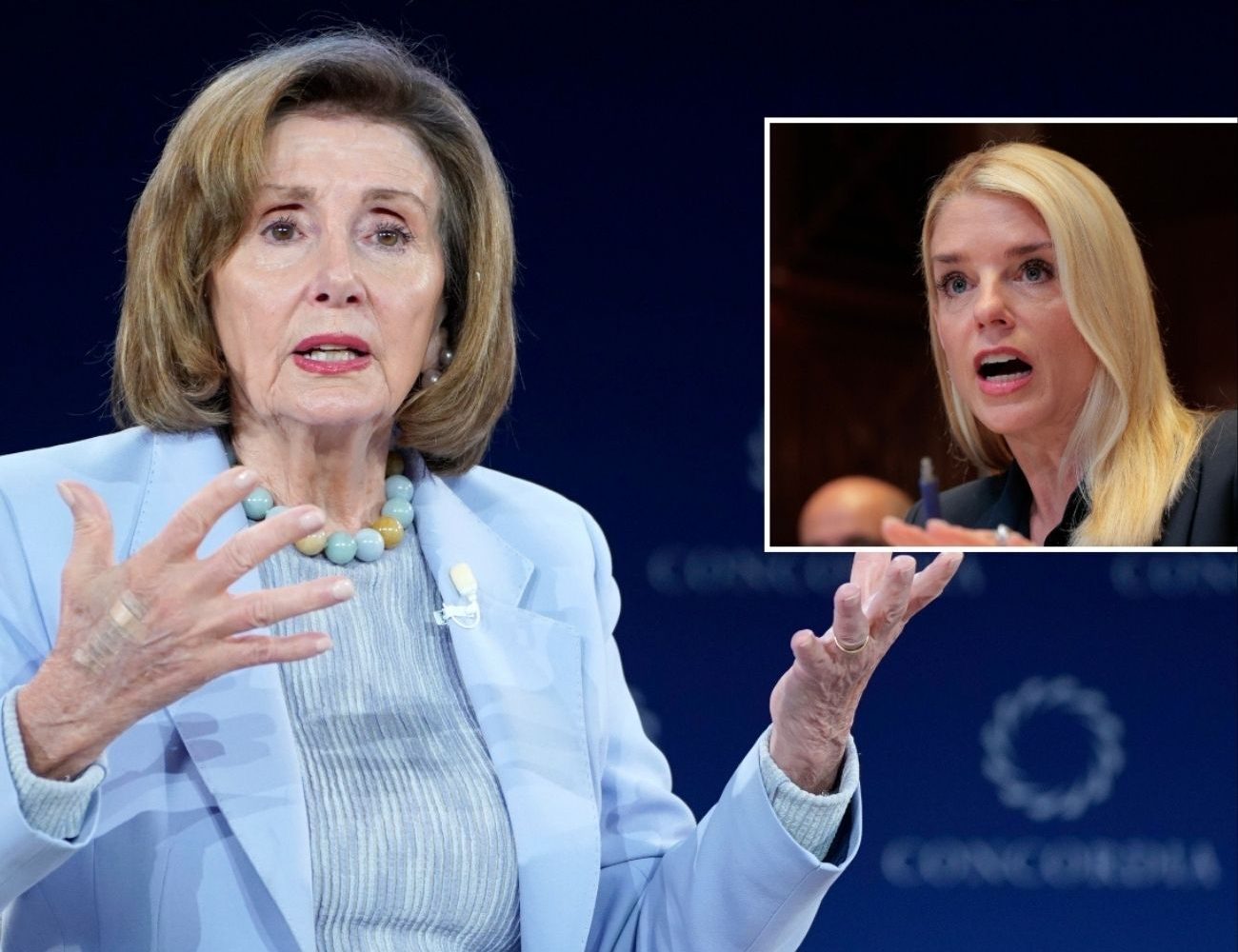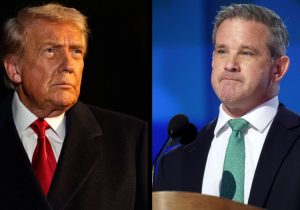A Rare Warning From Washington
The U.S. Department of Justice has issued an unusually direct warning to several top California officials — including former House Speaker Nancy Pelosi, Governor Gavin Newsom, and Attorney General Rob Bonta — after public remarks suggested the state could take legal action against federal immigration agents operating in the Bay Area.
In a formal letter sent Thursday, Deputy Attorney General Todd Blanche stated that any attempt to impede or detain federal officers “acting within the scope of their duties” would be “illegal and futile.” The DOJ’s tone, according to multiple sources familiar with the communication, reflected growing frustration inside Washington over what officials view as a pattern of state-level resistance to immigration enforcement.
Blanche warned California’s leadership that federal law is clear: agents working under Immigration and Customs Enforcement (ICE) or other federal departments cannot be arrested or prosecuted by state authorities for performing their lawful duties.
The Flashpoint: San Francisco and an Anticipated ICE Operation
The immediate dispute erupted earlier this week when reports circulated about a potential federal immigration operation in San Francisco, a city long known for its “sanctuary” policies limiting cooperation with federal authorities.
Pelosi and Representative Kevin Mullin (D–California) released a joint statement calling the rumored operation “an appalling abuse of law enforcement power.” The two lawmakers accused the Trump administration of targeting immigrant communities for political gain and warned that federal agents who violated California law could face state prosecution.
“While the President may enjoy absolute immunity courtesy of his rogue Supreme Court,” the statement read, “those who operate under his orders do not. The people of San Francisco will continue to stand with the patriotic immigrants who are the constant reinvigoration of America.”
Within hours, Blanche responded online, posting a brief message on X:
“We just sent them a letter: Stand down or face prosecution. No one threatens our agents. No one will stop us from Making America Safe Again.”
The post drew immediate national attention and underscored how immigration policy has once again become a frontline battle between federal and state authorities.
https://twitter.com/DAGToddBlanche/status/1981495700450893894
Inside the DOJ Letter
According to officials who reviewed the document, the DOJ letter invoked multiple federal statutes, including 18 U.S.C. § 111, which makes it a felony to assault, resist, or impede federal officers. It also cited the Supremacy Clause of the U.S. Constitution, which establishes that federal law takes precedence over conflicting state or local ordinances.
Blanche instructed Newsom, Bonta, Pelosi, and San Francisco District Attorney Brooke Jenkins to “preserve all written and electronic communications related to any attempts or efforts to obstruct federal law enforcement.” The letter explicitly warned that the Justice Department “will investigate and prosecute any official who violates those statutes.”
The deputy attorney general urged the officials to “publicly abandon this apparent criminal conspiracy, to stop threatening law enforcement, and to prioritize the safety of your citizens.”
While such direct language from DOJ leadership is rare, officials familiar with internal discussions said the department wanted to “draw a clear line” before the rumored operation takes place.
https://twitter.com/alx/status/1981536352458904030
California’s Response: Silence So Far
As of Friday morning, neither the governor’s office nor the state attorney general’s office had issued a response. Spokespeople for Pelosi and Jenkins also declined to comment, saying they were still reviewing the DOJ correspondence.
However, several California Democrats privately expressed concern that the warning letter could inflame tensions and complicate federal-state cooperation in other policy areas, including drug enforcement and environmental regulation.
A Democratic strategist in Sacramento described the letter as “unusually aggressive,” saying it “reads less like a legal warning and more like a political message.”
A Longstanding Conflict Over Immigration Policy
The clash is the latest chapter in a decade-long feud between Washington and California over immigration enforcement. The state has passed several laws that restrict cooperation with ICE, including SB 54, the “California Values Act,” which limits when local law enforcement can share information with federal immigration authorities.
Supporters say those policies protect vulnerable residents and encourage community trust. Critics, however, argue they shield individuals who have committed serious crimes and obstruct legitimate law enforcement efforts.
During previous administrations, federal officials have filed lawsuits against California over such policies, arguing that they violate the Constitution’s supremacy clause.
“This is not new,” said Thomas Homan, former acting ICE director. “California has been trying to block enforcement for years, but threatening to arrest federal agents crosses a line.”
Federal Agents on Alert
According to internal communications reviewed by several outlets, federal agents operating in the Bay Area have been advised to maintain heightened security protocols. Officials say the advisory is standard for “high-tension operations” but reflects concern about potential protests or local interference.
An ICE spokesperson said the agency remains “fully committed to enforcing federal law” and that its personnel “will not be deterred by political statements or threats.”
Civil rights groups, however, have warned that large-scale immigration raids could reignite tensions in communities still recovering from prior enforcement actions.
“People are afraid,” said Maria Torres, a San Jose-based immigration attorney. “Every time there’s a report of a raid, families panic — even those with legal status.”
The Constitutional Crossroads
Legal experts say the confrontation raises fundamental questions about the limits of state power. While states can regulate cooperation between their own law enforcement and federal authorities, they cannot directly block federal agents.
“This is a classic Supremacy Clause issue,” explained Professor Laura Jennings, a constitutional law scholar at Stanford. “If a federal officer is carrying out duties under lawful authority, the state cannot arrest or prosecute them — even if the state disagrees with the federal policy.”
Jennings added that while state leaders may criticize federal actions, “the threat of arrest moves from political speech to potential obstruction.”
A Test of Political Nerves
For Pelosi, the controversy comes at a time when she remains a symbolic figure in Democratic politics. Though she no longer holds a leadership position, her influence in California’s political landscape is considerable.
Observers note that the former Speaker has long balanced her national prominence with representing one of the most progressive districts in the country — where resistance to Trump-era policies remains strong.
For the Justice Department, the letter marks a moment of reassertion. Under the renewed Trump administration, senior officials have emphasized restoring “law and order” and curbing what they call “rogue local defiance.”
The question now is whether California’s leadership will de-escalate or double down.
What Comes Next
Sources in Washington say the planned immigration operation is still moving forward, though details — including timing and scope — remain confidential. Federal agents have been instructed to coordinate directly with headquarters and avoid unnecessary contact with local authorities during the operation.
Privately, some analysts believe both sides are positioning for a legal showdown. “If the state were to attempt any arrest, DOJ would respond immediately in court,” one former federal prosecutor said. “The Supremacy Clause is not negotiable.”
As tensions rise, political observers warn that this confrontation could spill into the 2026 midterms, reshaping debates around immigration, states’ rights, and the rule of law.
For now, both sides are holding their ground — with California’s leadership silent and the Justice Department signaling that enforcement will continue, regardless of threats or resistance.

James Jenkins is a celebrated Pulitzer Prize-winning author whose work has reshaped the way readers think about social justice and human rights in America. Raised in Atlanta, Georgia, James grew up in a community that instilled in him both resilience and a strong sense of responsibility toward others. After studying political science and creative writing at Howard University, he worked as a journalist covering civil rights issues before dedicating himself fully to fiction. His novels are known for their sharp, empathetic portraits of marginalized communities and for weaving personal stories with broader political realities. Jenkins’s breakout novel, Shadows of Freedom, won national acclaim for its unflinching look at systemic inequality, while his more recent works explore themes of identity, resilience, and the fight for dignity in the face of oppression. Beyond his novels, James is an active public speaker, lecturing at universities and participating in nonprofit initiatives that support literacy and community empowerment. He believes that storytelling is a way to preserve history and inspire change. When not writing, James enjoys jazz music, mentoring young writers, and traveling with his family to explore cultures and stories around the world.









